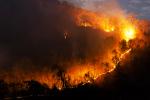CHICAGO — Brian Butler was watching the news one Friday evening in 2009 when he saw images of Hilliard Dry Cleaners, a nearby competitor, engulfed in flames.
As president of Dublin Cleaners in Columbus, Ohio, about 20 miles away from Hilliard, Butler immediately understood what those images meant for business owners Joe and Mindy Watkins. The next morning, he called.
Everyone was safe, Mindy Watkins told him, and insurance would have them operational again in four months, but the situation was overwhelming.
“We just weren’t sure of our future,” she says. “We had no idea what direction to turn.”
She told Butler they planned to shut down temporarily while they waited for the money and rebuilt.
“You can’t do that,” Butler said then, explaining that drycleaning customers wouldn’t wait — they would develop new routines elsewhere. He offered a solution.
“I told them just to bring their stuff over Monday afternoon,” he says. “I didn’t have the people to do their cleaning, but I had the resources. I told them, ‘Bring your people, bring your stuff, and we’ll figure this out.’”
Watkins was hesitant. “We just weren’t sure of the logistics, and how bad everything was,” she says. Butler gave her time to think about it, but when she spoke with him again on Sunday, she was still resistant.
“Did anybody else call you and offer to help like this?” Butler asked.
“Yeah, one other person,” Watkins said. “Your dad.”
Butler hadn’t even talked to his father yet — both had independently reached the same conclusion about what needed to happen.
By Monday, the Hilliard Cleaners team was working out of the Dublin Cleaners facility. Butler suggested they simply pay the production-related variable costs from Hilliard’s P&L, acknowledging he didn’t know if that would put Dublin ahead, behind or even. “It wasn’t going to make that much of a difference,” he says.
The arrangement lasted three months. “All of our staff was absolutely wonderful,” Watkins says, noting most had worked for her father before her, and went with the change in venue and schedule. “They were real troopers.”
This helping hand from a competitor gave Watkins a new appreciation for the value of relationships in this industry.
“My takeaway was that you can prevail,” she says. “Disasters happen. You work through them, and you depend on other people to help you get through, and that’s what Brian and his father, Greg, and the whole Dublin Cleaners team did for us. I learned that you can depend on friendships to help you to survive catastrophes.”
What happened next, however, surprised Butler. One of his shirt pressers mentioned the arrangement to a friend at the local NBC affiliate. Within days, Butler says, every major Columbus media outlet covered the story of competitors helping each other.
“Here I am thinking, why wouldn’t people do this?” Butler says. “When I saw that news coverage, I thought, ‘That could so easily be me. Who would help me?’”
Handwritten notes poured in from customers — both existing and new — saying they wanted to support a business they could trust. But Butler wasn’t thinking about reaping goodwill when he made that first call.
“I think you have to be the help you seek from others in the future, or else you can’t count on it being there for you again,” he says.
A Broader Industry Culture
Butler’s response wasn’t an anomaly — it reflected a cooperative culture that many operators consider fundamental to the drycleaning business.
“My grandparents were part of the Columbus Dry Cleaning Guild,” says Butler, whose family has been in the business for more than 90 years. “These were friendly competitors who would loan parts or maybe some service help here and there because they all recognized that they had more in common with one another than differences.”
John-Claude Hallak, president of Hallak Cleaners and Bergen Linen in New York and New Jersey, has witnessed this cooperation repeatedly.
“When Hurricane Katrina hit, I had a friend in New Orleans who was absolutely incapacitated,” Hallak says. “We took our best presser and sent him down there to work with him and help him dig out. My guy was there for several weeks.”
Even locally, the response is consistent. “I’ve seen it many times. If there’s a fire and a cleaner is in a jam, people will come out of the woodwork to help,” Hallak says. “And it doesn’t matter that they’re only five miles away and may even be a competitor.”
He meets for dinner monthly with about 10 dry cleaners, several of whom are direct Manhattan competitors, to discuss best practices and challenges they’ve experienced. “There is no such thing as this in the linen business,” he says. “Dry cleaning is more of a brotherhood.”
Come back Thursday for Part 2 of this series, where we’ll look at other examples of cleaners lending a helpful hand to those in need, as well as how such relationships can be forged.
Have a question or comment? E-mail our editor Dave Davis at [email protected].

















